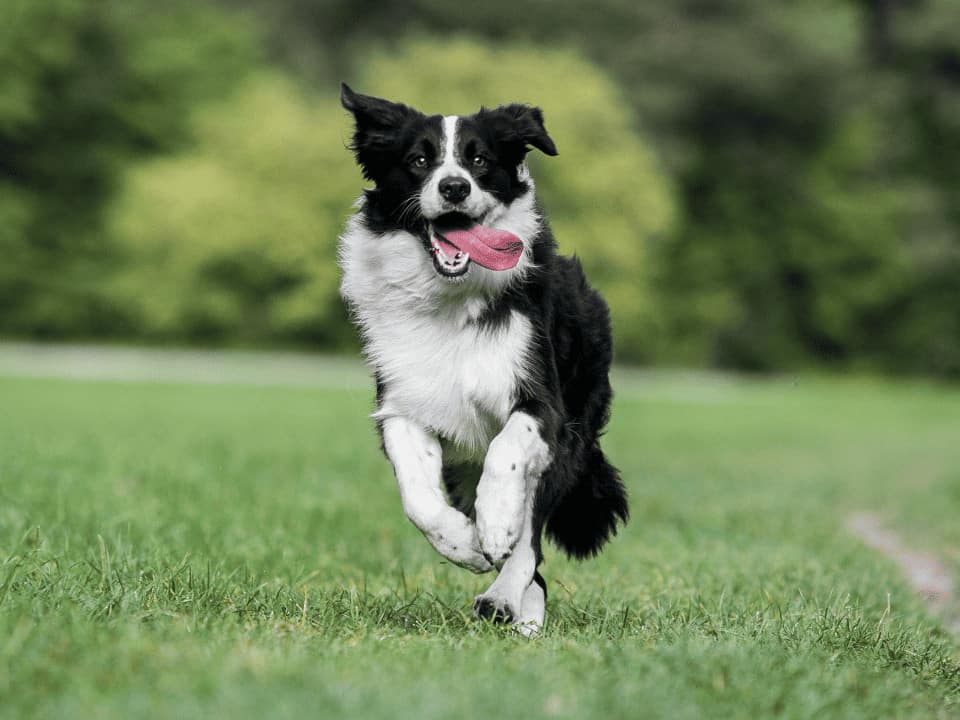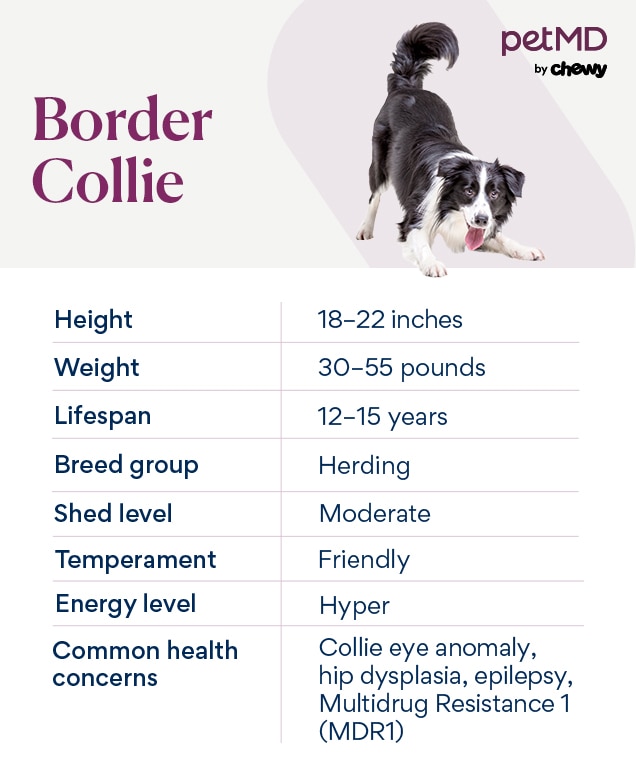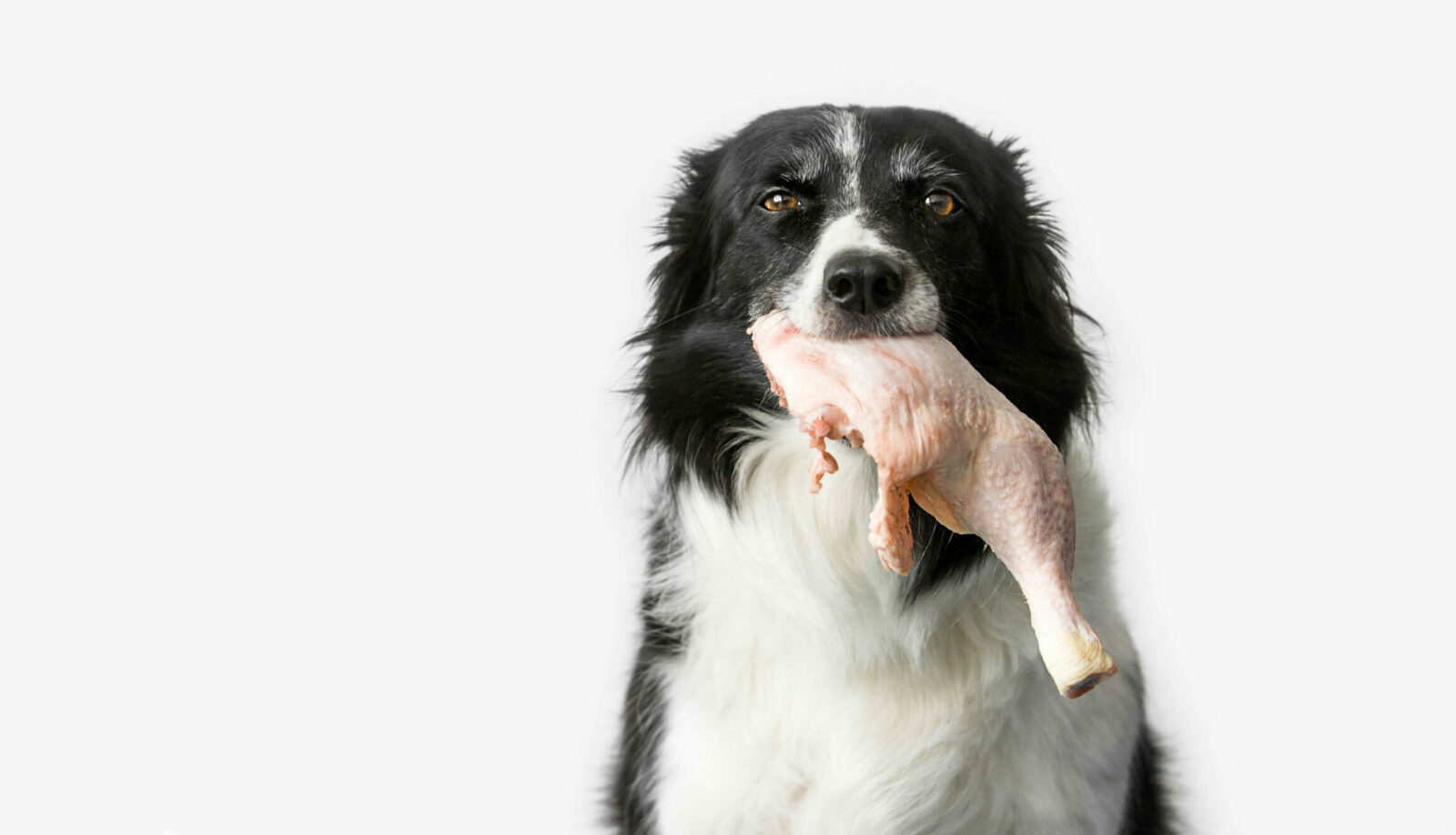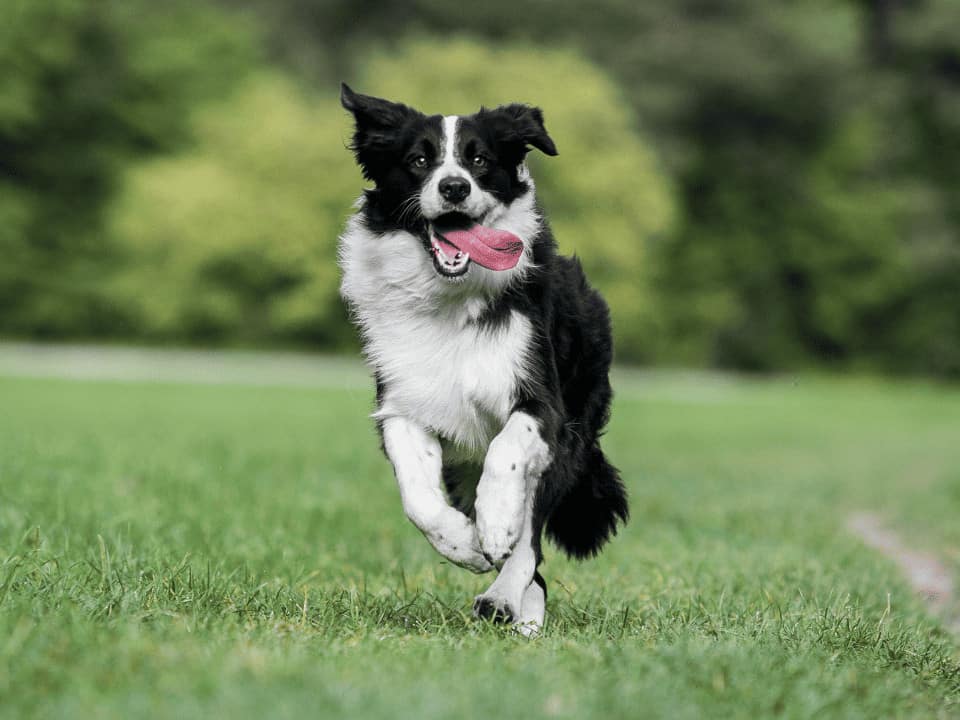A Border Collie should eat about 1.5 to 2 cups of food daily. This amount depends on their age, size, and activity level.
Border Collies are known for their energy and intelligence. To keep them healthy, you need to feed them the right amount of food. Overfeeding can lead to obesity, while underfeeding can cause malnutrition. It’s important to consider their lifestyle and specific needs.
This guide will help you understand how much food your Border Collie needs each day. By following these tips, you can ensure your dog stays active and happy. Let’s dive into the details to give your furry friend the best care possible.
Ideal Daily Food Intake
Determining the ideal daily food intake for a Border Collie is essential for their health. Proper nutrition helps them remain energetic and happy. This guide will help you understand the amount of food your Border Collie needs each day.
Factors Affecting Food Amount
Several factors affect the food amount a Border Collie needs:
- Age: Puppies need more food for growth. Adult dogs require maintenance levels.
- Weight: Heavier dogs need more calories. Lighter dogs need fewer.
- Activity Level: Active dogs burn more calories. Less active dogs need less food.
- Health Status: Healthy dogs eat normally. Sick dogs might need special diets.
Importance Of Balanced Diet
A balanced diet is crucial for your Border Collie’s well-being. It ensures they get all the necessary nutrients.
Here is a simple table showing a balanced diet:
| Nutrient | Percentage |
|---|---|
| Protein | 25-30% |
| Fat | 10-15% |
| Carbohydrates | 40-50% |
| Vitamins and Minerals | 5-10% |
Providing a mix of these nutrients helps maintain your dog’s health. It supports growth, energy, and a strong immune system.

Credit: www.burgesspetcare.com
Puppy Feeding Guidelines
Proper feeding is crucial for the healthy growth of Border Collie puppies. These energetic dogs need the right amount of food to support their active lifestyle. Let’s explore how much food your Border Collie puppy needs each day.
Nutritional Needs Of Puppies
Border Collie puppies have specific nutritional needs. They require a balanced diet with protein, fat, and carbohydrates. Protein supports muscle growth, while fat provides energy. Carbohydrates help with digestion and provide additional energy.
Look for puppy food that lists meat as the first ingredient. Avoid foods with fillers like corn and soy. These do not provide the nutrients your puppy needs. Ensure the food also contains vitamins and minerals.
Feeding Schedule For Puppies
A proper feeding schedule ensures your puppy receives enough nutrients throughout the day. Puppies need to eat more frequently than adult dogs. Here is a general feeding schedule:
- Up to 3 months: 4 meals a day
- 3 to 6 months: 3 meals a day
- 6 to 12 months: 2 meals a day
Divide the daily food amount into these meals. This helps prevent overeating and supports steady growth.
Here is a table to help understand the feeding schedule better:
| Age | Number of Meals |
|---|---|
| Up to 3 months | 4 |
| 3 to 6 months | 3 |
| 6 to 12 months | 2 |
Adjust the food amount based on your puppy’s activity level and growth. Monitor their weight and adjust portions if needed. Always provide fresh water alongside meals.
Adult Border Collie Diet
The diet of an adult Border Collie is crucial for their health and energy. These dogs are known for their intelligence and agility. A balanced diet helps them stay active and happy. Let’s explore their caloric needs and the best food types.
Caloric Requirements
Adult Border Collies need the right amount of calories to maintain their energy levels. On average, a Border Collie should consume about 1,000 to 1,400 calories per day.
- Active dogs may need up to 1,400 calories.
- Less active dogs might need around 1,000 calories.
Monitor your dog’s activity to adjust their calorie intake. Overfeeding can lead to obesity.
Recommended Food Types
Choosing the right food for your Border Collie is essential. Here are some recommended food types:
| Food Type | Description |
|---|---|
| High-Quality Dry Kibble | Rich in nutrients and easy to store. |
| Wet Food | Good for hydration but can be pricey. |
| Raw Diet | Includes meats and vegetables, but needs careful preparation. |
Always check the ingredients list. Avoid foods with too many fillers or artificial additives.
It’s important to consult with your vet to ensure your Border Collie’s diet is balanced and meets their specific needs.

Credit: www.petmd.com
Senior Border Collie Nutrition
As Border Collies age, their dietary needs change. A senior Border Collie requires specific nutrition to maintain health and energy. Proper nutrition helps them stay active and happy in their golden years.
Adjusting Food Portions
Senior Border Collies generally have slower metabolisms. They need fewer calories than younger dogs. Overfeeding can lead to obesity and health issues. It’s important to adjust their food portions accordingly.
Here is a simple table to guide you:
| Weight (lbs) | Daily Food (cups) |
|---|---|
| 30-40 | 1.5-2 |
| 40-50 | 2-2.5 |
| 50-60 | 2.5-3 |
Feed them smaller, more frequent meals. This helps with digestion and energy levels.
Special Nutritional Needs
Senior Border Collies need more protein. Protein maintains muscle mass and strength. Choose high-quality protein sources like chicken or fish.
They also need more fiber. Fiber aids digestion and prevents constipation. Look for foods with added fiber like sweet potatoes or pumpkin.
Omega-3 fatty acids are essential. They support joint health and reduce inflammation. Fish oil supplements or foods rich in Omega-3s are beneficial.
Vitamins and minerals are crucial. Vitamin E supports immune function. Calcium keeps bones strong. Ensure their diet includes these essential nutrients.
Consider these points when selecting food for your senior Border Collie:
- High-quality protein
- Added fiber
- Omega-3 fatty acids
- Essential vitamins and minerals
Always consult your vet for personalized advice. Every dog is unique and may have specific dietary needs.
Activity Level Considerations
Understanding the right amount of food for your Border Collie can be tricky. One key factor to consider is their activity level. Border Collies are known for their high energy. Their dietary needs vary greatly based on how active they are.
Impact Of Exercise On Diet
Exercise plays a big role in determining food needs. A Border Collie that exercises a lot needs more calories. This helps them maintain energy and stay healthy. Regular activities like running, fetching, or agility training burn many calories. The more they move, the more food they need.
A good way to measure their food intake is by using a calorie calculator. An active Border Collie often needs 1,000 to 1,400 calories per day. Less active dogs need fewer calories. Always adjust based on their weight and health.
Feeding Active Vs. Sedentary Dogs
Active Border Collies and sedentary ones have different needs. Active dogs need high-protein food. Protein helps build and repair muscles. Look for foods rich in chicken, beef, or fish.
Sedentary dogs need fewer calories. Overfeeding can lead to weight gain. Choose foods with lower fat content. Also, ensure they get enough fiber. Fiber helps with digestion and keeps them full longer.
Here’s a simple table to guide you:
| Activity Level | Calories Per Day | Food Type |
|---|---|---|
| High Activity | 1,000 – 1,400 | High Protein |
| Moderate Activity | 800 – 1,000 | Balanced Diet |
| Low Activity | 600 – 800 | Low Fat, High Fiber |
Feeding your Border Collie based on their activity level ensures they stay healthy. Always monitor their weight and adjust their diet as needed.

Credit: www.elmoskitchen.com
Weight Management
Weight management is crucial for a Border Collie’s health. These energetic dogs need a balanced diet to maintain their weight. Proper feeding ensures they stay active and happy. Overfeeding can lead to obesity, which causes many health issues.
Signs Of Overfeeding
Watch for signs of overfeeding in your Border Collie. Extra weight gain is a clear indicator. Feel their ribs. If you can’t, they may be overweight. Look for a round, full belly. It suggests they’ve eaten too much. Also, check their energy levels. A lethargic dog may be carrying extra weight.
Maintaining Healthy Weight
Maintain your Border Collie’s healthy weight with the right food portions. Measure their meals accurately. Use a standard measuring cup. Avoid free-feeding. Stick to a regular feeding schedule. Include daily exercise. Walks, runs, and playtime help burn calories. Monitor their weight regularly. Adjust their food intake as needed.
Feeding Tips And Tricks
Feeding a Border Collie involves more than just filling a bowl with food. Knowing how much and when to feed them is key. Proper feeding ensures your Border Collie stays healthy, energetic, and happy.
Meal Timing
Consistency is crucial. Feed your Border Collie at the same time each day. This helps regulate their digestive system.
Split their daily food into two meals. This prevents them from overeating at one time. It also helps avoid bloating, which can be dangerous.
Morning and evening are ideal times. Feed them half of their daily food in the morning and the other half in the evening.
Proper Hydration
Water is as important as food. Ensure your Border Collie has access to fresh water at all times.
During meals, add a small amount of water to their dry food. This can make the food easier to eat and help with hydration.
Keep an eye on their water intake. If they drink too much or too little, consult your vet.
Common Feeding Mistakes
Feeding a Border Collie the right amount of food is crucial for their health. But many owners make common feeding mistakes. These mistakes can lead to health problems and behavioral issues.
Avoiding Human Food
Many dog owners love to share their food with their pets. Yet, giving Border Collies human food can be harmful. Some foods are toxic to dogs.
- Chocolate
- Grapes
- Onions
- Garlic
Even foods that are not toxic can upset a dog’s stomach. Human food often has too much salt, sugar, and fat. It can cause obesity and other health issues.
Recognizing Allergies And Intolerances
Border Collies can have food allergies and intolerances. Common allergens include:
- Beef
- Dairy
- Chicken
- Grains
Watch for signs of allergies. These signs include itchy skin, ear infections, and digestive problems. If you see these signs, consult your vet. They can help identify the allergen and suggest a new diet.
Feeding your Border Collie the right food is essential for their health. Avoid human food and recognize signs of allergies and intolerances. Your dog will be happier and healthier.
Frequently Asked Questions
How Much Should An Adult Border Collie Eat?
An adult Border Collie should eat about 1. 5 to 2 cups of dry dog food daily.
Should Border Collie Puppies Eat More Often?
Yes, puppies need to eat more often. Feed them three to four times a day.
What Type Of Food Is Best For Border Collies?
High-quality dry dog food with meat as the first ingredient is best for Border Collies.
Can Border Collies Eat Human Food?
Some human foods are safe, but always check with your vet first. Avoid chocolate, onions, and grapes.
How Do I Know If My Border Collie Is Eating Enough?
Check their weight and energy levels. If they seem sluggish or lose weight, adjust their food intake.
How Does Activity Level Affect A Border Collie’s Diet?
Active Border Collies need more calories. Adjust their food amount based on their activity level.
Is It Okay To Give Border Collies Treats?
Yes, but treats should make up no more than 10% of their daily calories.
How Much Water Should A Border Collie Drink Daily?
A Border Collie should drink about one ounce of water per pound of body weight daily.
Should I Feed My Border Collie Wet Or Dry Food?
Both are fine. Dry food helps with dental health, while wet food can be more palatable.
How Can I Prevent My Border Collie From Overeating?
Measure their food portions and avoid free-feeding. Stick to a feeding schedule and avoid table scraps.
Conclusion
Feeding your Border Collie the right amount is crucial. It ensures their health and happiness. Remember to adjust portions based on their activity level. Active dogs need more food. Less active dogs need less. Always provide fresh water. Consult your vet for personalized advice.
A balanced diet supports their energy and well-being. Keep an eye on their weight and adjust as needed. Your Border Collie deserves the best care. Proper feeding habits go a long way. Happy feeding!
